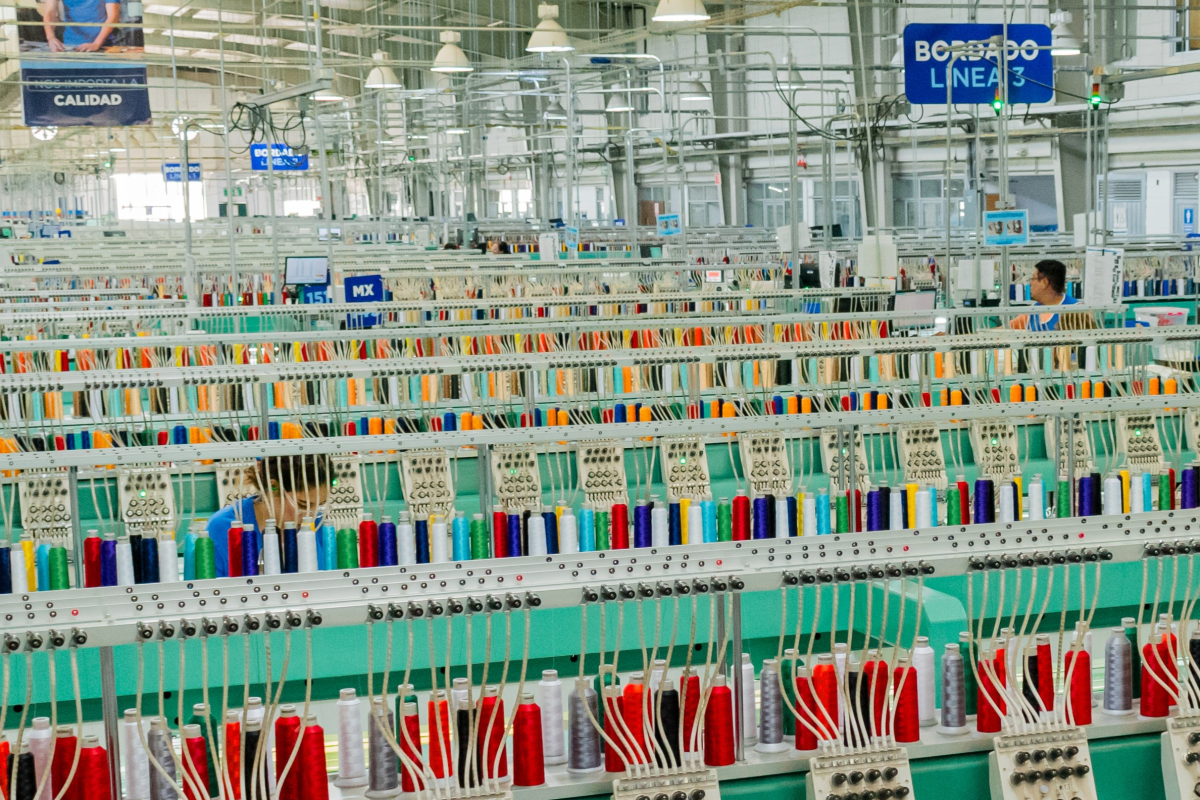American businesses reel as Trump tariffs start to bite
It’s not just American consumers who will feel the impact of tariffs — businesses across the U.S. will, too.
President Trump imposed steep new taxes Tuesday on imports from three of the country’s biggest trading partners — China, Mexico and Canada — raising concerns about rising prices, a falling stock market and retaliation against U.S. exporters.
The taxes are expected to lead to higher prices on a wide range of imports, including Canadian lumber, fresh produce from Mexico and toys from China. Mark Zandi of Moody’s Analytics told Morning Edition that the tariffs would cost the typical U.S. family $1,200 a year.
But the tariffs will be costly to American businesses, too. Most will try to pass the cost of the tax on to consumers, but many will likely have to absorb some of the cost themselves.
And businesses have also been operating in a state of limbo, unsure of when or whether the import taxes would take hold.
“Customers are pausing on new orders as a result of uncertainty regarding tariffs,” one factory manager told the Institute for Supply Management for its monthly survey on manufacturing conditions.
“What-if scenarios”
Randy Carr runs a business based in Fort Lauderdale, Fla., that makes embroidered emblems for sports teams and work uniforms. Much of the manufacturing is done in Mexico.
Carr said he’ll try to pass the new import tax along to customers by raising prices but assumes he’ll have to bear some of the cost himself. As a result, he has temporarily halted investment at his factories in Texas and Georgia.
“We have a plan to deal with it, but honestly it’s punitive to my staff and the growth of the business, because it’s just another form of a tax,” Carr said.

Dealing with the tariff has been a distraction, he added.
“We’re not running the business,” Carr said. “We’re not taking care of our customers. I’m not taking care of my employees. I’m taking care of what-if scenarios on tariffs.”
American farmers are concerned
Canada and China swiftly responded with tariffs of their own on U.S. exports. Mexico promised to do the same in the coming days.
Those tariffs could hurt American producers. China, for example, imposed retaliatory tariffs on products including corn, cotton, soybeans and pork.
That tit for tat alarms Bob Hemesath, who raises corn and hogs in Decorah, Iowa. He worries about the potential fallout for rural communities across the country.
“There’s a lot of jobs associated with agriculture and agricultural trade,” he said. “Once you lose those export markets, it’s awful hard to get them back.”
A trade war during Trump’s first term hit agricultural exports so hard that the federal government ended up making farm relief payments of more than $60 billion — much of that money brought in by tariffs on imports from China.
Trump’s new tariffs could also drive up the cost of potash fertilizer, much of which comes from Canada.
“Let’s make this as short as possible, and let’s resolve it as quickly as possible,” Hemesath said.

U.S. Chamber asks Trump to reverse tariffs
The U.S. Chamber of Commerce — which has welcomed much of Trump’s pro-business agenda — urged the administration to backtrack quickly on the trade war.
“Tariffs will only raise prices and increase the economic pain being felt by everyday Americans across the country,” Neil Bradley, the chamber’s chief policy officer, said in a statement. “We urge reconsideration of this policy and a swift end to these tariffs.”
Meanwhile, stocks tumbled Tuesday, with the Dow Jones Industrial Average falling nearly 600 points as of midday. That followed a 650-point drop on Monday, after Trump said there was “no room left” for a deal to avoid the tariffs.
The tariffs include a 25% tax on most imports from Mexico and Canada, along with a 10% tax on Canadian energy products. Trump also imposed an additional 10% tax on imports from China, saying all three countries had not done enough to stop the flow of illegal fentanyl.
Taiwan’s president pledges to defend island’s sovereignty after Chinese military drills
Taiwanese President Lai Ching-te vowed to defend the self-ruled island's sovereignty in the face of what he termed China's "expansionist ambitions," days after Beijing wrapped up live-fire military drills near its shores.
Deaths reported during widening protests in Iran sparked by ailing economy
The protests began due to economic pressures, with Iran's currency rapidly depreciating. Demonstrators have also chanted against the country's theocracy.
Congress failed to extend Obamacare subsidies. This Democrat says Trump can save them
Sen. Peter Welch, D-Vt., says he thinks the Senate can pass a "retroactive" Affordable Care Act subsidy extension, but "we need President Trump."
Rideshare union rights, social media limits and other state laws taking effect Jan. 1
Every new year, public media reporters across the country bring us some of the new state laws taking effect where they are. Here are six in 2026.
Guides to help you tackle your New Year’s resolutions
From building your strength to tackling credit card debt, NPR's Life Kit has a newsletter journey to help you tackle your New Year's resolution.
Guides to help you tackle your New Year’s resolutions
From building your strength to tackling credit card debt, NPR's Life Kit has a newsletter journey to help you tackle your New Year's resolution.





